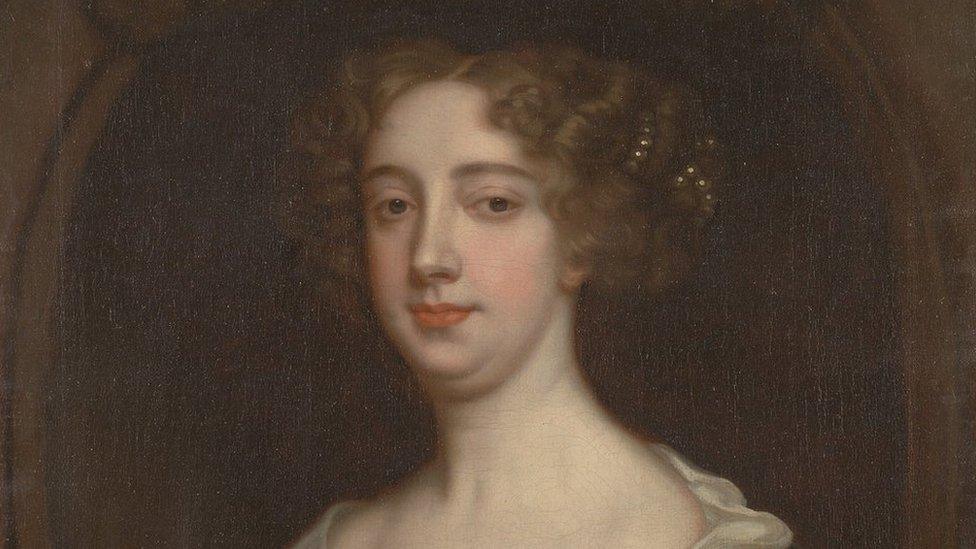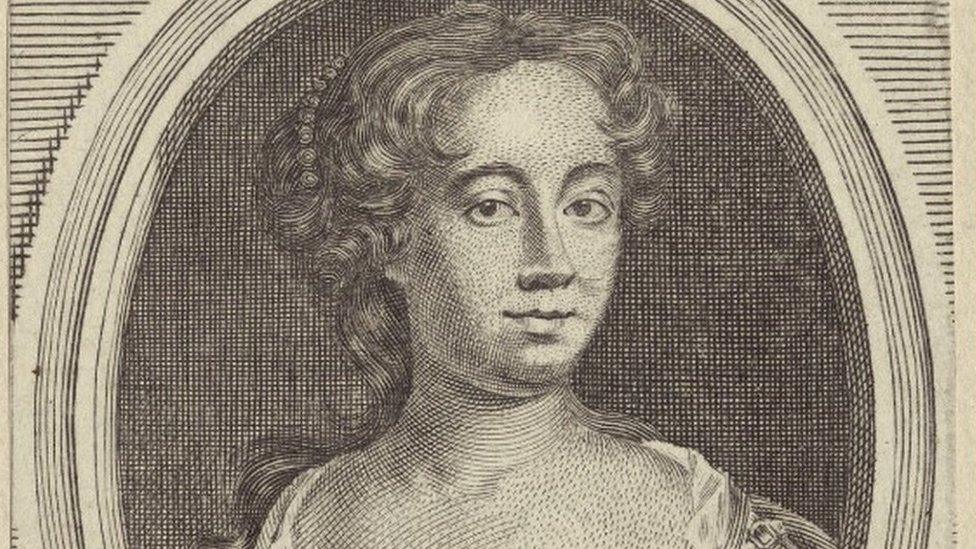Aphra Behn: Campaigners call for statue of female playwright
- Published

Campaigners say Aphra Behn's writings exposed the horrors of slavery
Campaigners are hoping plans for a new statue of a female playwright will lead to more recognition of her work.
Aphra Behn, born in 1640, was the most prolific playwright of her era, as well as being a spy for Charles II.
Elaine Hobby, a literature professor from Loughborough University who is supporting the campaign, said she was "really excited" by it.
If the calls are successful, the bronze statue would be erected in Behn's home city of Canterbury, in Kent.
Professor Hobby said campaigners had so far raised about £13,000 of the £125,000 required to erect the statue.

Poet Charlotte Cornell is leading the campaign
She plans to tour an exhibition of the four shortlisted artists' proposed designs at places associated with the playwright's life, including the National Civil War Centre, in Newark, Nottinghamshire, and Sissinghurst Castle, in Kent.
The public will then be able to vote for their favourite with the winning statue expected to be unveiled by summer 2023.
Prof Hobby, who is currently working on a new edition of Behn's work, said: "I am really excited [by] the campaign to have a statue of Aphra Behn erected in Canterbury.
"There are many people who I do not think should be celebrated with a statue but I deeply believe we should acknowledge and celebrate the life of Behn.
"She wrote about the need to change the world in positive ways.
"I honestly find it puzzling that her works are not performed more but I wonder if it's the case that many theatres fear not finding an audience."

Who was Aphra Behn?

Aphra Behn's writings were considered "too bawdy" by later audiences
Aphra Behn grew up in Canterbury before moving to London where she made her name as a playwright, poet and spy for Charles II
She was the most prolific playwright of her era and also wrote a short novel Oroonoko, which exposed the horrors of slavery to an English public
During the later 18th and 19th Centuries Aphra Behn's writings were considered too sexual and bawdy to be performed. Reading Behn was also considered indecent and so her writings fell out of popularity
Behn is buried in Westminster Abbey
Source: Loughborough University

Charlotte Cornell, a poet and PhD student at the University of Kent, who is leading the statue project, said: "Aphra deserves recognition, not just because she was the first professional woman writer, but because she was an excellent writer.
"Women across centuries have well deserved being commemorated in the public sphere, yet for too long it has [been] denied them."
Culture Secretary Nadine Dorries is also backing the campaign.
She said: "Aphra Behn paved the way for female writers everywhere - myself included.
"She had the guts to speak her mind, and the daring to write about subjects traditionally considered 'male only'."

Follow BBC East Midlands on Facebook, external, Twitter, external, or Instagram, external. Send your story ideas to eastmidsnews@bbc.co.uk, external.